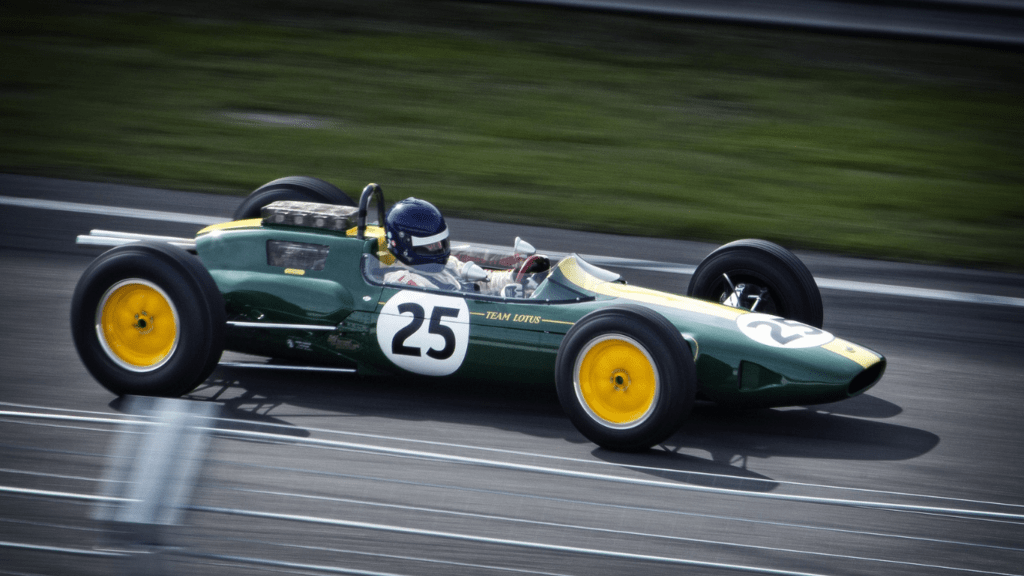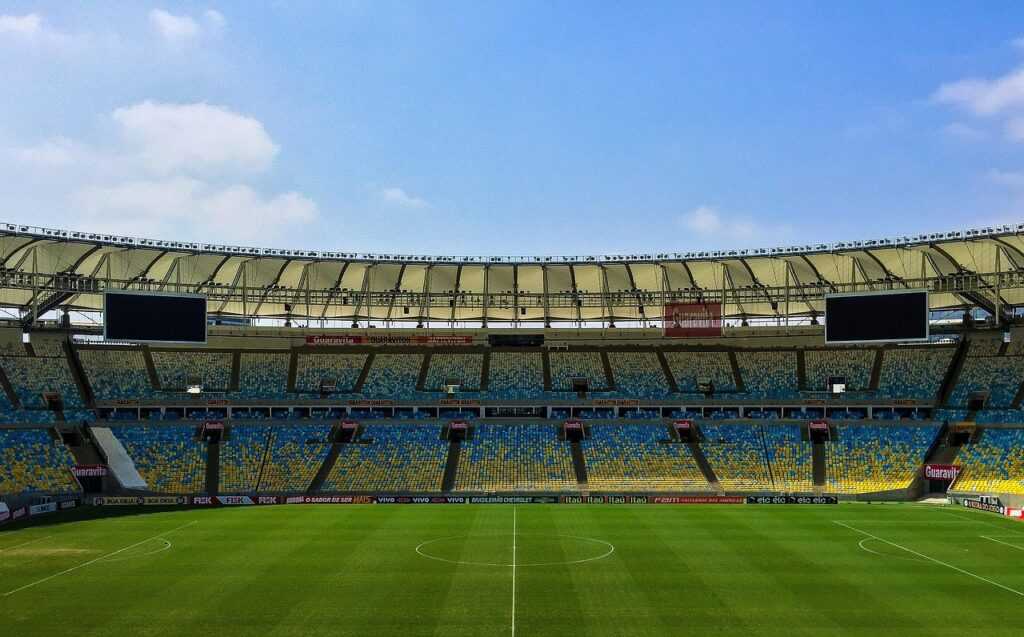History of Formula 1 Championship
The Formula 1 Championship, dating back to 1950, has evolved significantly over the decades. Known for its dynamic nature, each era brought unique changes and challenges that shaped the sport.
Evolution Over the Decades
During the 1950s, F1 cars featured basic engineering with front-mounted engines. By the 1960s, mid-engine designs became standard, enhancing performance. The 1970s introduced ground-effect aerodynamics, radically transforming race strategies. Turbocharged engines defined the 1980s, leading to unprecedented power outputs. Safety improvements marked the 1990s, with advances in cockpit protection and circuit design. The turn of the millennium saw hybrid technology’s rise, with regulations focusing on sustainability and efficiency.
Iconic Moments and Milestones
F1 history is filled with iconic moments. In 1976, Niki Lauda’s near-fatal crash and subsequent comeback captured global attention. Ayrton Senna and Alain Prost’s fierce rivalry in the 1980s and ’90s showcased extreme competition. Michael Schumacher’s seven world titles, particularly his dominant Ferrari years, set a new standard. In recent years, Lewis Hamilton’s achievements, including breaking several records, have further elevated the sport’s profile.
Key Teams and Drivers
Formula 1’s thrilling championship battles are defined by legendary teams and iconic drivers. Their skill and engineering excellence set the stage for unforgettable races.
Legendary Teams
Ferrari, founded in 1929, holds the record for the most Constructors’ Championships. Its cars have won 16 titles and over 230 races. Notable moments include Michael Schumacher’s five consecutive championships from 2000 to 2004.
McLaren, established in 1963, boasts 8 Constructors’ titles and 12 Drivers’ Championships. Iconic victories include Ayrton Senna’s and Alain Prost’s fierce rivalry in the 1980s.
Mercedes, which returned to F1 as a full team in 2010, has dominated the hybrid era. It secured seven consecutive Constructors’ Championships from 2014 to 2020, with drivers like Lewis Hamilton at the helm.
Williams, formed in 1977, has 9 Constructors’ Championships and 7 Drivers’ titles. The 1990s were their golden era, with drivers like Nigel Mansell and Damon Hill leading the charge.
Iconic Drivers
- Ayrton Senna, known for his unparalleled qualifying speed, won three World Championships with McLaren. His rivalry with Alain Prost defined an era.
- Michael Schumacher, with 91 race wins and 7 World Championships, set records that stood for years. His tenure with Ferrari made him a legend.
- Lewis Hamilton, who matches Schumacher’s seven titles, redefined modern F1 with over 100 race wins. He has been instrumental in Mercedes’ recent dominance.
- Niki Lauda, remembered for his remarkable comeback following a near-fatal crash in 1976, won three championships with Ferrari and McLaren, inspiring countless fans and drivers alike.
Each of these teams and drivers has profoundly impacted Formula 1, making it the high-speed, high-stakes sport beloved by millions.
The Race to the Title: 2023 Season

The 2023 Formula 1 season has been nothing short of exhilarating. Competing teams and drivers are pushing their limits, making this an unforgettable championship race.
Top Contenders
The battle for the championship has seen fierce competition among the top drivers. Max Verstappen from Red Bull Racing has consistently shown strong performance, leveraging his aggressive driving style and racecraft. On the other hand, Lewis Hamilton of Mercedes is proving that experience and skill are paramount, adding more podium finishes to his already impressive record. Ferrari’s Charles Leclerc is emerging as a serious contender, combining youthful enthusiasm with precision driving. These drivers, among others, are setting the pace and defining the season’s intensity.
Key Races and Results
Several races have played pivotal roles in shaping the 2023 season. The Monaco Grand Prix saw a spectacular win by Verstappen, who dominated the tight street circuit. Hamilton claimed victory at the British Grand Prix, thrilling home fans at Silverstone with a masterclass performance. The Italian Grand Prix at Monza showcased Leclerc’s talents, as he secured a crucial win boosting his title aspirations. Each key race has significantly impacted the standings, keeping fans on the edge of their seats.
By focusing on the key contenders and pivotal races, the 2023 Formula 1 season highlights the sport’s dynamic nature and the relentless pursuit of excellence by its top drivers.
Technology and Strategy
Formula 1 isn’t just about sheer speed; it’s also where cutting-edge technology and strategic maneuvering play pivotal roles. Each season unveils new advancements and intricate plans that push the boundaries of what’s possible.
Innovations in Car Design
Formula 1 car design evolves rapidly, integrating the latest technologies. Teams invest millions in research and development to gain a competitive edge. Aerodynamics is crucial; a car’s design minimizes drag and maximizes downforce to enhance speed and handling. For example, Red Bull Racing’s RB16B used advanced aerodynamics, contributing significantly to their success.
Materials used in construction also impact performance. Carbon fiber, known for its lightweight and high-strength properties, is standard in F1 cars. Engine technology has shifted from loud, powerful V8s to quieter, more efficient hybrid power units. Mercedes’ successful hybrid engines illustrate this trend, balancing power and fuel efficiency.
Race Strategies and Pit Stops
Strategy in Formula 1 can be a game-changer. Teams meticulously plan race strategies, factoring in tire wear, fuel loads, and weather conditions. Different tire compounds, from soft to hard, offer varying levels of grip and longevity. Selecting the right tire at the right time can lead to victory, as seen in strategic calls made by Red Bull Racing and Mercedes.
Pit stops are critical moments in a race. Teams practice relentlessly to reduce pit stop duration, knowing each second counts. A typical stop involves changing all four tires in under three seconds. Ferrari’s efficient pit stops have often given them crucial time advantages, underscoring the importance of speed and precision.
Combining innovative car designs and strategic race planning, Formula 1 continues to captivate with technological advancements and strategic brilliance.
Fan Experience
Experiencing Formula 1 as a fan is exhilarating. Whether watching live at the track or following online, there’s an unmatched thrill and passion.
Attending Races
Being at an F1 race offers an immersive experience like no other. The electrifying atmosphere, the deafening roar of engines, and the camaraderie among fans make it unforgettable. Iconic circuits such as Monaco, Silverstone, and Monza provide unique charms, from street racing thrills to historic legacies. Attending a race not only allows fans to witness high-speed action firsthand, but also provides opportunities to explore exclusive fan zones and participate in meet-and-greets. Pit walks, autograph sessions, and merchandise booths enhance the fan engagement and deliver treasured memories. F1 race weekends also feature support races and entertainment activities, ensuring an all-around exhilarating experience.
Following Formula 1 Online
Staying connected with F1 online offers unparalleled convenience and access. Official F1 websites and apps deliver real-time updates, exclusive videos, and in-depth analysis, keeping fans informed and engaged. Social media platforms like:
allow live interaction, sharing insights, and joining discussions with other fans. Streaming services, such as F1TV and partner broadcasters, provide live race coverage, replays, and special features, ensuring fans don’t miss any action. Online fan communities further enhance the experience by creating spaces for discussions, debates, and sharing of fan-created content, fostering a global sense of connection and passion for the sport.



